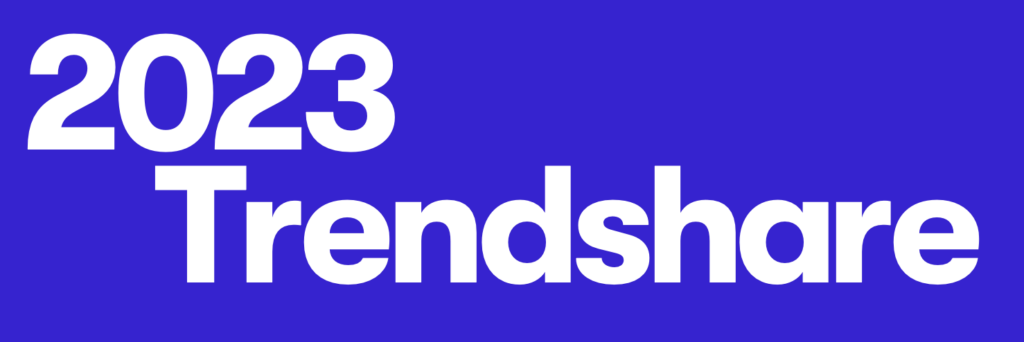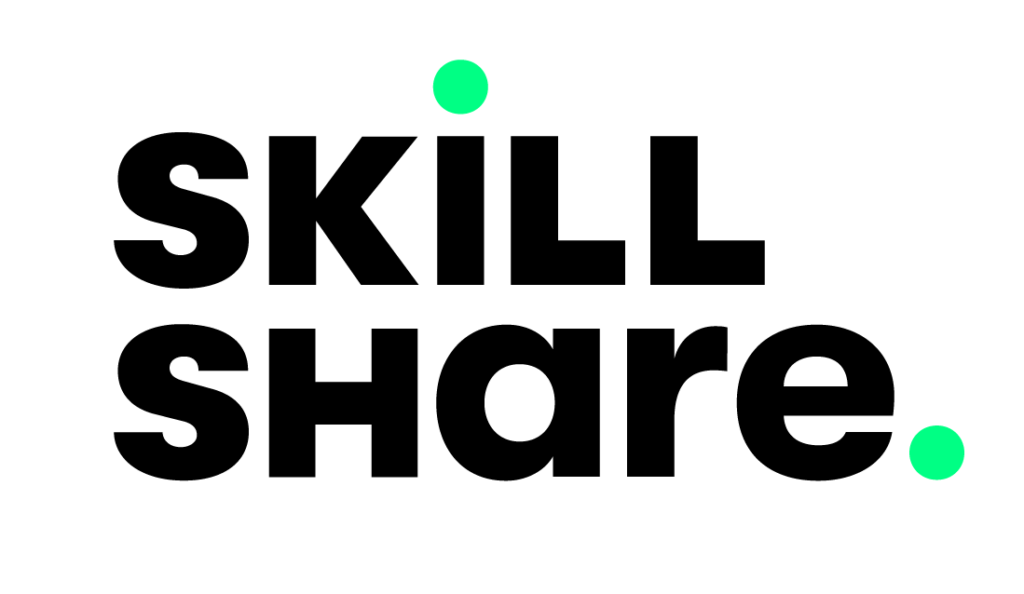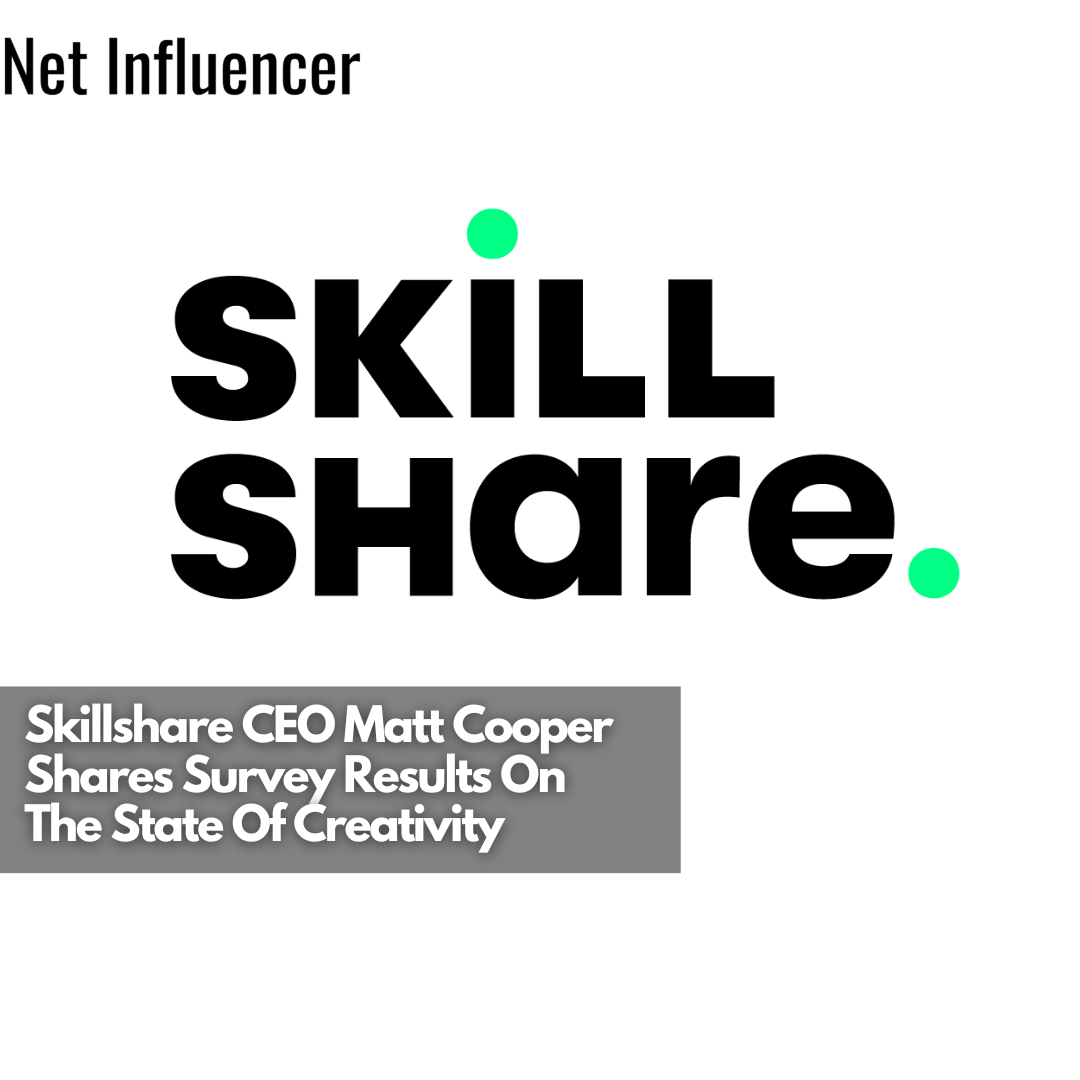Technology
Skillshare CEO Matt Cooper Shares Survey Results On The State Of Creativity
Skillshare surveyed 1,000 creative professionals and hobbyists from December 2022 to January 2023 to learn where their skills are taking them. The survey resulted in the creation of Trendshare, Skillshare’s first report on the state of the creator economy. Today, Matt shares with us the survey results and his insights about the creator economy.
Skillshare surveyed 1,000 creative professionals and hobbyists from December 2022 to January 2023 to learn where their skills are taking them. The survey resulted in the creation of Trendshare, Skillshare’s first report on the state of the creator economy. Today, Matt shares with us the survey results and his insights about the creator economy.
About Matt Cooper
Matt Cooper is the Chief Executive Officer of Skillshare, an online learning community where anyone can take and teach classes. According to Matt, the need to create Trendshare stems from the significant changes in the creative workforce.

“Many people started this creative passion project, which then became a side hustle and became a significant part of their income. The last downturn in 2008 and 2009 pushed people towards a different style of working, where the idea of putting all your economic eggs in one basket and working for one company doesn’t feel as safe as it used to.”
Matt adds that because of these downturns, people realize how important it is to have a side hustle. This way, they’ll have something else to fall back on if their company fires or lets them go.
How Creativity Impacts the Traditional Workplace
Matt definitely saw a change in the traditional workplace because of creativity. He explains, “Companies have to get more comfortable with a more fluid workforce.”
Every company has its core set of employees, but Matt encourages companies to recognize that some employees are looking for something else. These employees likely treat their employers as one of the companies they work for, as opposed to the only company they want to work for. Some employees might even look for another company with a more freelance approach.
“For employers, this means that the traditional working model doesn’t fit anymore. But what you’re also seeing is that the whole creator economy as a whole requires more nurturing.”
Matt admits that even after creating Skillshare, which has been in the creator economy since 2010, he is still figuring the creator economy out. He adds, “Everybody is still figuring out how the economics work and how to turn it into a long-term, sustainable income stream.”
Whether the Pandemic Caused Changes to the Creator Economy
The pandemic affected countless industries, and the creator economy isn’t an exemption. Matt recognizes how the pandemic accelerated certain trends in the creator economy.
Matt explains companies that never do creative work when working remotely had to do it for a year and a half because of the pandemic. He adds, “I think all companies that are trying to get people back in the office will find it hard to get the toothpaste back in the tube. So, I think our day-to-day working model has changed.”
Matt explains further that the other part is the personal component, as discussed in the Trendshare report. He continues, “What drove a lot of our activity in 2020 was people looking for other things to do with their time that were healthy, positive, and constructive in reducing anxiety and stress other than binge-watching Netflix.”
By April 2020, most people had run out of Netflix movies to watch and felt awful not doing anything for a month. This situation prompted people to subscribe to something better and look at creative pursuits as a healthier way of spending their time online rather than scrolling on social media.
“The mental aspect is something that we saw take off in 2020 and has continued to today.”
How Technology Affected Creativity in the Workplace
The traditional workplace uses technology, but Matt saw the change in how people use technology ever since the creator economy exploded.
He shared that he was one of the early employees of Upwork back in 2009 and had to follow rules when he worked remotely. He shares, “If you were remote, your video was on. It’s not the same being in person, but you can see my body language and facial expression and see if I’m engaged or paying attention to that video.”
According to Matt, “The technology was one thing, but I think it was more on how do you use the technology.” Matt believes that the sudden shift of dependency on technology happened because of the pandemic.
People used tools pre-pandemic and became a lifeline and mission-critical. People also upgraded and moved from one system to another, figuring one which one was better.
“Everyone was using Google Docs and Zoom before, they’re not new, but how we’re using them changed. The technology was already there. It evolved as this explosion happened. But what evolved more is how we used technology and how we got comfortable with it to do things that we didn’t think were possible before.”
Matt goes on to give more examples, like onboarding employees and establishing communications and behavioral norms when the company is remote. He says, “The technology did evolve, but how we engage with it, how we leverage it, changed a lot.”
Creator Economy and Its Impact on Traditional Businesses
Matt says the creator economy has affected traditional businesses in different ways. For one, the access to talent and how traditional businesses can tap into exceptional talent on an as-needed basis.
He explains further, “Particularly for smaller companies where you don’t need an expert in that specific thing all the time. The ability to jump in and jump out as those needs arise is important.”
But as for Matt, having fractional access to talent was already underway, and the pandemic gave everybody a crash course into how to tap into that talent remotely.
“The pandemic sort of pushed that evolution forward by five or ten years. But then, the scope of roles now accessible in that model has grown. Outsourcing or using remote talent is no longer a big deal.”
How the Creator Economy Will Evolve in the Future
Matt expects to see a lot of creator economy platforms trying to rationalize how to become a business and generate cash in the future.
“So 2023 and going into 2024, you’re going to see a lot of companies that the next round of funding is not there, and so they’re going to either find a home, shut down, find capital, or change their business model.”
Because there was a lot more remote activity going on in 2020 and 2021 and lesser in 2022 and beyond, Matt expects a churn within creator economy platforms.
He continues, “People that had placed a bet as individuals on those platforms will need to figure out what that new model looks like, what those new economics look like, and find a more stable platform, like Skillshare, to place the chips moving forward.”
Matt Cooper’s Vision for the Future
“In the future, generated AI has brought this into focus for a lot of people. It’s all right, you’ve got this thing that can now type in what you want, and it’ll spit it out, but what does that mean for humans?”
And Matt isn’t the only one asking that question. Many creatives, like writers and artists, worry that AI will replace them anytime soon. But this isn’t true, and the survey conducted by Skillshare has proven this point.

Matt clarifies, “AI is an accelerant and an instigator, it’s not a replacement. We’ve talked to our creators, and we saw this come through in our survey. They view it [AI] as a support mechanism and an aid to help them do what they do, and do it faster and more efficiently.”
Matt shares that creators in his team use AI in the early stages of getting the juices following, brainstorming, coming up with ideas, or taking existing ideas to morph them into new approaches, designs, and palettes. In short, AI makes their job easier and faster, but it doesn’t do the job for them.
“I think we’re heading into a phase where the combination of AI, better software, better tooling, is going to bring more people into the space and make it easier for the best people to do amazing work and set themselves apart.”





















